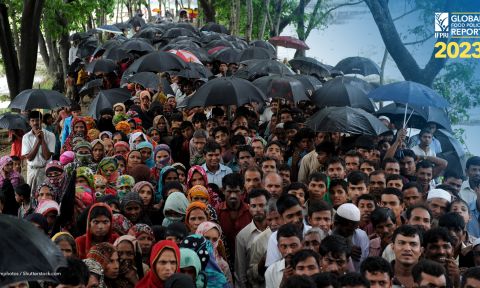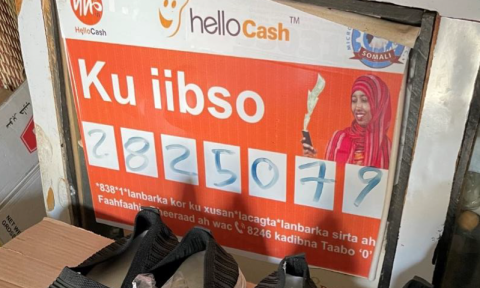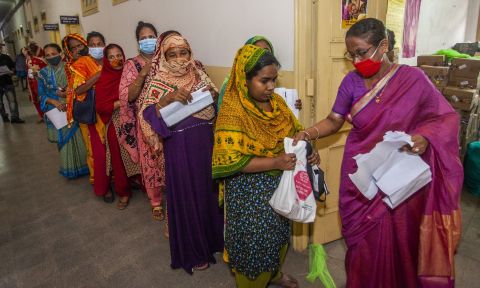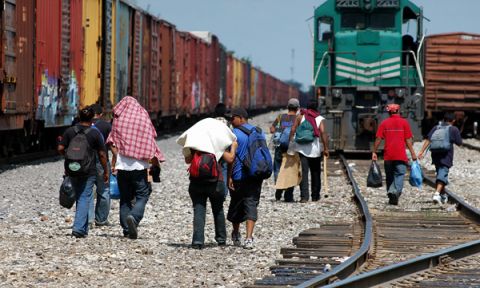IFPRI conducts evidence-based research both on the factors leading to voluntary migration and migrant remittances, and on the effects of migration on both migrants and source households, including effects on food security and household well-being. Our research further considers the gendered drivers and impacts of migration, including examining access to resources and livelihood choices by those who remain behind.
Evidence shows that internal and international migration can create significant economic benefits for migrants as well as both source and destination communities. Remittances—the money sent by migrants to their home countries—are important sources of income that drive economic growth in migrant sending countries. Voluntary migration can also improve food security both for migrants and the households they leave behind. Those who remain behind can benefit from new economic and decision-making opportunities, but they may also face growing work burdens and inadequate access to resources; attention to empowering such individuals is critical.
IFPRI’s research on this topic is closely aligned with the Sustainable Development Goals (SDGs), including SDG1, SDG2, SDG8, SDG10, SDG11, and SDG16.
COVID-19 and extreme weather: Impacts on food security and migration attitudes in the rural area of Guatemala
Development and Validation of Women’s Empowerment in Migration Index (WEMI)
Promoting a bundle of biofortified seeds and agricultural inputs in northeastern Nigeria
COVID-19 and livelihoods in rural Guatemala: Lessons from a long term assessment and the path to recovery
Parental migration and children’s dietary diversity at home: Evidence from rural China
Income aspirations, migration, and investments on and off the farm: Evidence from rural Tajikistan
Myanmar Household Welfare Survey (MHWS), Round 1
Replication Data for: The Gendered Impacts of Income Fluctuations on Household Departure, Labor Supply, and Human Capital Decisions
A&T Ethiopia Complementary Feeding Baseline Survey 2015: Community
A&T Ethiopia Complementary Feeding Endline Survey 2017: Community
Bangladesh Integrated Household Survey (BIHS) 2018-2019
Ethiopia Alive & Thrive Endline Survey 2014: Community
 Series/Special EventMar, 5 2024
Series/Special EventMar, 5 2024Navigating Sudan’s Conflict: Research Insights and Policy Implications
 IFPRI Policy SeminarJul, 20 2023
IFPRI Policy SeminarJul, 20 2023Irregular Migration and Food Security: A View from West Africa
 IFPRI Program/Country EventJun, 10 2021
IFPRI Program/Country EventJun, 10 2021Feminization of Agriculture: Building evidence to debunk myths on current challenges and opportunities
 IFPRI Program/Country EventNov, 25 2020
IFPRI Program/Country EventNov, 25 2020Migration and Gender Dynamics in Irrigation Governance in Nepal
 IFPRI Policy SeminarJun, 30 2020
IFPRI Policy SeminarJun, 30 2020Virtual Event - How are food businesses coping with COVID-19 and its aftermath?
 IFPRI Program/Country EventJun, 11 2020 (Jun, 10 - 11 2020)
IFPRI Program/Country EventJun, 11 2020 (Jun, 10 - 11 2020)Assessing the Impact of COVID-19 on Myanmar’s Economy and the Impact of Falling Remittances on Poverty
- In the News
Diversify income, rural people told (The Nation)
- In the News
Reviving the farm economy (Business Standard)
- In the News
Channel Africa Radio interviews Katrina Kosec

Alan de Brauw
Senior Research Fellow
Manuel Hernandez
Senior Research Fellow
Katrina Kosec
Senior Research Fellow
Kate Ambler
Senior Research Fellow
Valerie Mueller
Nonresident Fellow







